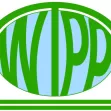Web 2.0
Do's and Don'ts for Planning in a Web 2.0 Environment
Is your city looking to engage residents online? The latest generation of tools just might be your savior. Or your demise.
New York City to Pass Landmark Open Data Law
Sarah Lai Stirland reports on the new bill, that was to be voted on by the City Council on Wednesday, which would codify many of the principles articulated by open government advocates in recent years.
Faculty Using Web 2.0 to Show Images
Lately as I’ve been trying to help students find information for papers and classes, I’ve stumbled across a few new examples of faculty using the web to give others access to visual data from their research.
New Technologies Increase Citizen Investment In Cities
A recent Pew Research study revealed that 58% of 25-34 year old Americans own smartphones, and communicate with each other, and their city governments in new ways.
S.F. Attracting Tech Industry from Silicon Valley
More tech workers are choosing the city over the suburbs. Now companies themselves are beginning to follow suit, reports Jon Swartz.
Local Digital Media Outlets Galvanize Neighborhoods
Washington's panoply of hyperlocal news media is filling the holes left by tradition outlets as web 2.0 expands. Since many of the local newspapers have folded, bloggers and other digital media have grown to cover matters at the local level.
Planning Faculty Blogs
One of my first posts back in 2007 dealt with planning faculty blogs (see http://www.planetizen.com/node/24748).
Connecting Coders and Cities
Urban Omnibus talks with Jennifer Pahlka of Code for America, a group looking to get the youth involved in developing computer programs and applications that help improve urban areas.
Can an Operating System be Developed to Run a City?
Melissa Lafsky asks if citizen initiative facilities like '311' and 'fixmystreet' should be expanded into an "operating system" for cities.
Locals vs Tourists Mapped Through Photography
Eric Fischer uses Flickr geodata to visualize where photos are taken in cities, and by whom. The result is a colorful divide between tourists and locals in a variety of cities around the world.
Free Tools to Connect Your City
Why build your own? There are several free web applications out there that help cities interface with their citizens. Christian Madera picks the best.
Exploring Web 2.0 in Urban Planning
Last year I had the opportunity to teach a graduate course on "Web 2.0 for Policy and Planning" at the University of Southern California's School of Policy, Planning & Development. Although I am co-teaching a different class this year, I have updated my course website with a revised course syllabus and extensive reading list on Web 2.0 and planning, based on what I learned from teaching the course in Spring, 2009.
London to Open City Data Streams
London is making public more than 200 streams of city data, joining a host of world cities in sharing city-collected data with its citizens.
Top 10 Free Web Applications for Planning
I had the opportuntity, at the 2009 national planning conference in Minneapolis, to present (together with my colleague Christian Peralta Madera) ten free web applications that can be used to support planning. Approximately 350 participants attended the session. Since the presentation, I've received over 100 emails congratulating us on the practical nature of the presentation, and requesting links to the websites we presented. Since our presentation was a hands-on demonstration, this blog entry outlines the ten technologies, and provides links to examples of the technology in practice and resources so you can experiment with the technologies.
Obama, Web 2.0 and Planning
What can we as planners learn from president-elect Barak Obama's use of technology? President-elect Obama has been an early adopter of Web 2.0 technologies both in his campaign and the transition to the White House. It is likely that the Obama administration will continue to use Web 2.0 technologies to both engage the public in determining policies and to make government operations more transparent. As planners, there are a lot of great tools and techniques that we can use in the planning processes. Here are some of the tools that the Obama team have used that could be used in planning.
DIYcity.org - Leveraging Web 2.0 for Smarter Cities
Here in New York City, there is an incredibly popular burger stand in Madison Square Park called The Shake Shack. It's one of the touchpoints for Silicon Alley, and a great meet-up spot. The problem is that its usually insanely crowded, with an hour-long line stretching well across the park.Not to be defeated, Silicon Alley geeks created the Shake Shack Twitter Bot, which serves as a sort of chat room for people to report wait times at the Shake Shack. It's a few dozen lines of code that leverages Web 2.0 technology to make the city smarter, more efficient, and more fun.
Time for Government 2.0
With increasing amounts of data collected and held by governments, there's a lot of opportunity to make use of it for the betterment of communities, according to this column from Neal Peirce.
Web 2.0 in Planning
Hot technologies like blogs, mashups, YouTube, Flickr, and social networking are among the most notable of new Internet technologies that are collectively known as Web 2.0. These technologies offer great possibilities for planners.
Licking County
Barrett Planning Group LLC
City of Cleburne
HUD's Office of Policy Development and Research
Mpact Transit + Community
HUD's Office of Policy Development and Research
City of Universal City TX
ULI Northwest Arkansas
City of Laramie, Wyoming
Urban Design for Planners 1: Software Tools
This six-course series explores essential urban design concepts using open source software and equips planners with the tools they need to participate fully in the urban design process.
Planning for Universal Design
Learn the tools for implementing Universal Design in planning regulations.




























